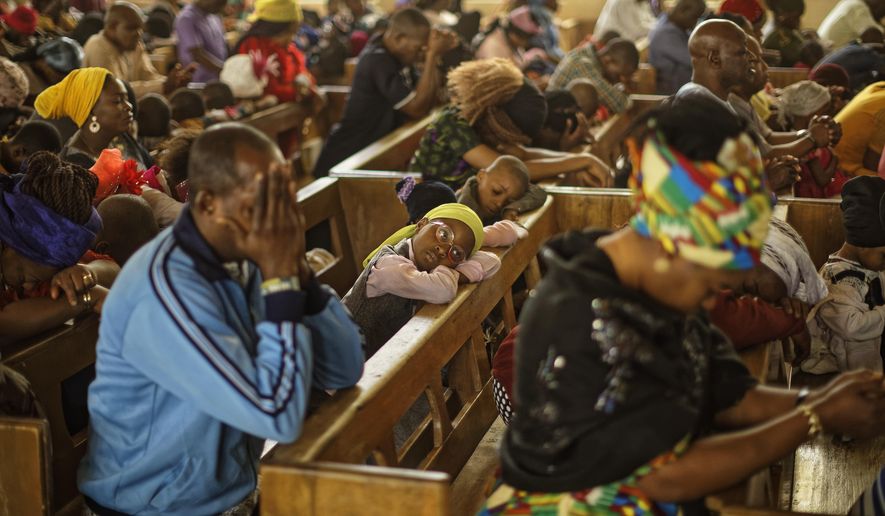Nigeria should be redesignated as a “Country of Particular Concern” (CPC) for its treatment of Christians and other religious groups, an interfaith coalition of 47 groups and individuals says in a letter to President Biden.
The letter, released Wednesday by the Family Research Council, notes that Secretary of State Antony Blinken removed Nigeria from the CPC list just 11 months after his predecessor, Mike Pompeo, placed the West African country on the list.
“How can it be, less than a year after that significant designation, that Nigeria’s CPC designation has been dropped without a public explanation? The ongoing violence, killing, and displacement against Christians and others have only increased,” the letter states.
“The removal of Nigeria’s CPC designation is unjustified and sends the wrong message to governments around the world who engage in or tolerate egregious violations of religious freedom,” the letter says. “International pressure is one of the most significant weapons the world has to stop the slow-motion war unfolding in Nigeria. American leaders must not turn their backs and walk away.”
Family Research Council President Tony Perkins said in a statement: “The CPC designation is the U.S. government’s official ’worst of the worst’ list regarding religious freedom violations. Nigeria’s religious freedom problems are obvious and rapidly deteriorating even further. The Biden administration’s removal of Nigeria from the CPC list defies logic and sound policymaking.”
Other letter signatories include: Hassan John, director of communications for the Church of Nigeria, Anglican Communion; former Rep. Frank Wolf; Boko Haram kidnapping survivor Joy Bishara; Stephen Enada and Kyle Abts of the International Committee on Nigeria (ICON); the Rev. Andrew Brunson, the Family Research Council’s special adviser for religious freedom; the Rev. Benjamin Kwashi, Anglican archbishop of Jos, Northern Nigeria; Sam Brownback, former U.S. ambassador at large for International Religious Freedom; Nina Shea, director of the Hudson Institute’s Center for Religious Freedom; Mariam Ibraheem, co-founder and director of Global Mobilization for the Tahrir Alnisa Foundation; the Church of Scientology National Affairs Office; the Alliance Defending Freedom International; and ChinaAid, among others.
On Dec. 10, a State Department spokesperson, in response to an inquiry from The Times, said Mr. Blinken “has assessed that Nigeria does not meet the legal threshold for continued designation under the International Religious Freedom Act. We continue to have genuine concerns about the state of religious freedom in Nigeria.”
The spokesperson added, “During the secretary’s recent visit, he emphasized to President [Muhammadu] Buhari that advancing human rights – including religious freedom protection – remains a foundation of U.S. interests in Nigeria.”
Nigeria is one of the most evenly divided populations in the world between two major faiths: Muslims make up about 53% of the population and Christians about 45%, according to the most recently available census numbers, and there is a long history of sectarian tension between the two groups.
Persecution of Christians in Nigeria by Boko Haram and other Islamist militant groups has been well documented.
In November, International Christian Concern named Nigeria as a “Persecutor of the Year,” describing the country as “one of the deadliest places on earth for Christians, as 50,000 to 70,000 have been killed since 2000.” The ecumenical nongovernmental organization said Boko Haram “has displaced millions of people and killed tens of thousands of others.”
• Mark A. Kellner can be reached at mkellner@washingtontimes.com.




Please read our comment policy before commenting.